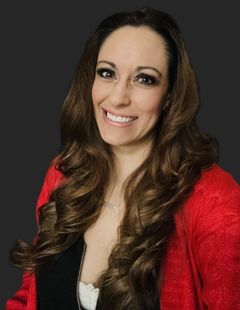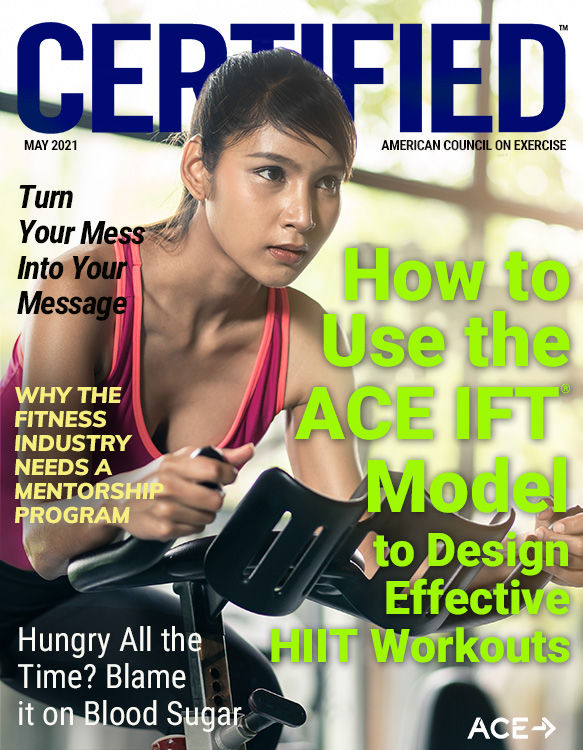
As professionals, we are fortunate the health and fitness industry offers a wide variety of certifications and continuing education courses. Further, multiple times a year, we are presented with engagement opportunities via in-person and virtual conferences and conventions, live webinars and home study courses. It’s clear our industry prioritizes skill development, knowledge acquisition and hands-on experiences for certified professionals. However, while certified health and exercise professionals are well-trained and practiced, there is an area of the industry that deserves closer attention: mentorship.
An Industry Gap
Today, it’s easy to connect with other professionals across the globe through Facebook friend requests and likes, LinkedIn connection invitations and Instagram or Twitter follows. As a result, many health and exercise professionals have been able to expand their professional and referral networks. Additionally, we have almost daily opportunities to learn from each other outside of formal education opportunities or conference events.
In some ways, mentorship is present in our industry and naturally occurs in certain relationships. But its presence is quiet, unconscious and casual. For example, because I am an educator and established professional, online followers and current and former students regularly reach out for guidance on issues related to their career path or work with clients. While I welcome these interactions, the frequency of these requests makes clear that there is a need for a more formal process or option.
Beverly Hosford, a colleague and fellow ACE Certified health and exercise professional, also receives regular mentorship inquiries from students and new professionals. “At one point, I considered setting up a formal program for anyone to have a mentor this way,” says Hosford. “I could see an internship or mentorship benefiting both new trainers and established trainers/facilities. [I found] mentoring a new personal trainer to be refreshing and rejuvenating and helped bring both me and my facility up a notch in our practices, because we were teaching and setting an example. My clients also enjoyed the experience. It made them feel good to know I was training new trainers and that I was their trainer.”
Currently, our industry lacks a formal or official mentorship program in which newly certified or aspiring health and exercise professionals can consistently seek guidance and advice from another, more experienced professional, particularly as they take their first steps into the real world. Altman (2005) reinforces this by stating, “The early days of a new career can be some of the most cumbersome and challenging and may actually be the days when a mentor is needed most.”
As an exercise science, personal training and health coaching educator for nearly 18 years, I have seen the desire and need for mentorship has been a recurring theme, underscoring student concerns about getting started in a dynamic and growing field. These new professionals are prepared with a solid foundation of knowledge and skills, but often leave a program lacking two critical ingredients for success: confidence and real-world perspective.
The Value of Mentorship
Every professional’s experience is punctuated with both mistakes and achievements. “Whether we realize it or not, we can all benefit from mentoring,” says Chris Gagliardi, Scientific Education Content Manager at American Council on Exercise. “No matter what stage of our career we are currently in, selecting and working with a mentor that has the experience and knowledge in the areas in which you want to improve can jumpstart your success, passion and confidence.”
Success. Passion. Confidence. These are ingredients professionals need to thrive and achieve. They are intangible components that underpin professional pursuits. In other words, these qualities are unlike the scientific principles we learn in our course of study of exercise science and/or health coaching. These virtues are not “learned” in the traditional sense, as we think of learning a trade or a set of guidelines or theories; they develop over time, by making mistakes, asking questions and gaining hands-on practical experience.
“There are many key details and intricacies that take place in real-world practice that are not always easy to communicate and share in other learning formats,” explains Gagliardi. “A mentor and mentorship program can fill in the gap between classroom or home study learning and practical application in a safe and rewarding atmosphere where your curiosity can be fully explored. Especially for newly certified professionals, having the opportunity for mentorship is valuable for building confidence and your own self-efficacy for working as an exercise professional or health coach.”
Speaking From Experience
As an undergraduate (and later as a grad student), I studied exercise science. During the semester before graduation, I remember thinking: I can’t wait to graduate. I’ll finally be a professional in the field. After graduation, however, I was faced with another thought (or, rather, fear): What now? Do I actually know what to do? Where do I go? How do I get there? Who will continue to teach me? The realization that I was unprepared made me feel like I had dived head-first into an immense, ice-cold body of water. The confidence I thought I had crumbled as I accepted that I might just be “on my own” to figure things out.
Of course, I applied for jobs because that’s what you do. Despite having completed a great internship at a fitness center, at no point in my college experience did I engage in a “where to start after you graduate” conversation. Nor did anyone talk to me about the importance of finding a mentor or connecting with other professionals who would serve as professional teachers and supporters. This is something I learned over time and by experience. Unfortunately, I don’t think my lack of preparedness or knowledge of what to do was unique, because students who are graduating or completing their home-study courses still ask the same “what, when, where and how” questions, and they need mentors to help them discover the answers.
Where Do We Start?
Unfortunately, there is no single formula or set of principles to guide the creation and implementation of a formalized mentorship program. Instead, this effort will need to be “from scratch.” Establishing a program will take intention and thought and several trips to the drawing board. Really, the effort required is not unlike the investment of time and effort our clients (along with our guidance) make in changing behaviors. We are, essentially, changing a behavior of the industry—going from no formalized or marketed program to beginning a conversation about how to get it done.
A quality and effective mentorship program—regardless of the specific industry—requires one first important step: Asking what professionals (beginning, experienced, veteran) need or want to see. The best place to begin is by asking existing and aspiring professionals what they would have liked to see and what they would support in a program of this nature. Consider it a needs assessment for the pros instead of clients. Asking the following questions is a good place to start:
- What is the most intimidating aspect of entering this field? Why?
- What would you like to know more about?
- What would help you build self-efficacy as a professional?
So, how do we get this done? What’s the best method for asking these questions? How do we capture professionals’ thoughts? Is it a focus group? A survey? Informal conversations that help to obtain qualitative data?
Components of a Quality Mentorship Program
A quality mentorship program includes:
- Clearly defined (and measurable) goals and objectives. What are the SMART goals for the program?
- Dedicated and interested professionals to work as mentors (who possess qualities of effective mentors)
- Training for mentors
- A mentor-mentee matching system
- A manager/program director
- Methodology for connecting new professionals with other new professionals
- Monetization model and marketing strategy
A Call to Action
This article’s focus is twofold. First, if we hope to fill a gap in our industry, we must first identify existing gaps and have a strategic, thoughtful and authentic conversation about how health and exercise professionals can work intentionally to fill that gap.
Second, this is also a call to action to professionals to begin that conversation wherever you are. If you work in a studio, with a small team, at a large organization or as an independent contractor who is capable and passionate about teaching new and aspiring professionals trade “secrets” and strategies, start talking about the critical and industry-shaping value of a mentorship program.
Those of us who are well established in the industry have not only the ability but the responsibility to encourage, guide and support those who will come after us. We owe it to our growing and well-respected industry; we owe it to ourselves to push our own boundaries and grow in our efforts to teach; and, finally, we owe it to those who are studying this craft and investing time and energy in learning. Learning and growing is best done together and as much as we embrace the notion of continuous quality improvement and education, we can do our part to embrace those aspiring to join the field.
Mentoring is not inherent to all professionals. To grow as an effective mentor, you must enjoy teaching and be comfortable sharing your experiences, including your mistakes and lessons learned, openly and authentically with those individuals who seek your counsel. While all certified health and exercise professionals learn the scientific principles associated with their respective career roles, the real, tough learning happens outside of a classroom and beyond the pages of a textbook or certification manual. Our experiences are the true “textbook” from which we learn the most. Mentoring, at its most basic and organic level, is about sharing experiences, providing insight and offering gentle guidance so that each person we mentor becomes a competent, confident and capable traveler along their individual professional journey.
Check out the
ACE Facebook page,
GroupFit page and
ACE Health Coach Network to connect with other health and exercise professionals and possibly find a mentor.





 by
by 


